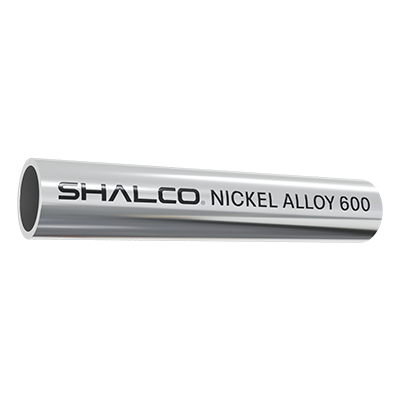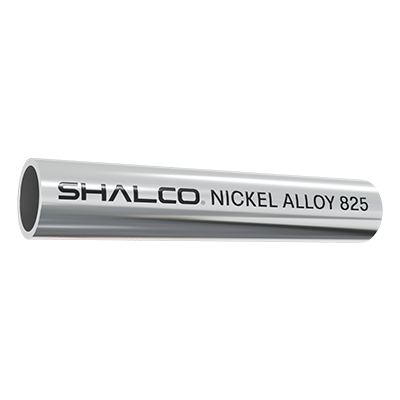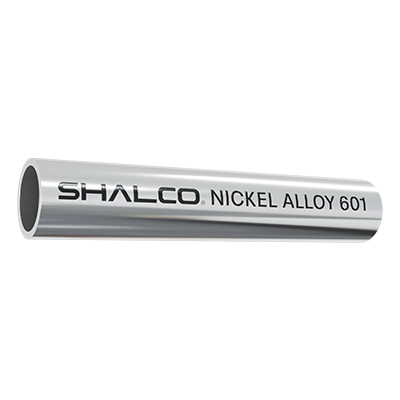Nickel Alloy 200-201

Nickel Alloy 200-201
Nickel 200/201 is a 99.6% wrought nickel alloy, renowned for its exceptional mechanical properties and superior resistance to corrosive environments. This commercially pure nickel alloy is highly valued in the chemical processing and electronics industries due to its ability to withstand various harsh conditions. The properties of Nickel 200/201 make it particularly effective in applications involving reducing chemicals, where it demonstrates unparalleled resistance to caustic alkalis. Unlike other nickel alloys, Nickel 200/201 stands out with extraordinary electrical and thermal conductivity, a characteristic attributed to the high density and purity of nickel. Its thermal properties make it ideal for use in heat exchangers, while its excellent electrical conductivity is beneficial in electrical components. Nickel 200/201 is also highly adaptable, being suitable for use in food processing, marine applications, and aerospace industries, thanks to its corrosion resistance and versatility. Its ability to perform reliably in extreme temperatures and challenging environments ensures long-lasting performance in demanding applications. Whether in chemical production facilities, where Nickel 200/201 resists aggressive agents, or in electrical applications requiring superior conductivity, this alloy is a trusted choice for industry professionals worldwide.
Alloy Nickel 200 and 201 have magnificent resistance from anhydrous hydrofluoric acid corrosive even at raised temperatures. Nickel 200 and 201 need to be utilized in nitric solutions just in acids of up to 0.5% concentration at room temperature. As a general rule, Nickel 200 and 201 have better protection from natural acids, everything considered, if air circulation isn’t high.
Nickel 200 & 201 can be used in nitric acid only in 0.5% concentrated solutions at normal temperatures. Generally, nickel 200 and nickel alloy 201 are excellent resistants to organic acids with all concentrations if there is no high aeration.
Physical properties of Nickel 200
What is Nickel 200? What are the nickel 200 properties?
Nickel 200 & 201 alloys are resistant to stress-corrosion cracking present in any sort of chloride salts and to all of the non-oxidizing halides too. Oxidizing acid chlorides like ferric, cupric and mercuric are greatly corrosive and need to be used with alloy 200 & 201 when in low concentration.
[#corrosion-resistance]Corrosion Resistance of Nickel 200 & 201[#corrosion-resistance]
Nickel 200 is exceptionally resistant to numerous corrosive media. Albeit generally used in reducing conditions, it tends to be utilized also under oxidizing conditions that may develop a passive oxide film.
Both Nickel 200 and 201 come with corrosion resistance in reducing and oxidizing media just as in oxidizing environments considering the oxidizing media permits the formation of a passive oxidizing film. This oxide film represents the materials’ astounding resistance in conditions with elevated temperatures.
This excellent resistance of N02201 to caustics is for this type of protection. In every condition, when temperatures elevate above 600°F (315°C), Nickel 201 rod is the preferred example of alloy.
[#fabrication-and-heat-treatment]Fabrication and Heat treatment[#fabrication-and-heat-treatment]
With all hot and cold working processes, nickel 200 and nickel alloy 201 can be shaped easily. Nickel alloy 200 / 201 can be worked in the temperature range of 1200° F and 2250° F, with heavy forming to be performed at temperatures more than 1600° F.
Nickel 200 or UNS N02201 has to be annealed and it can be done in various ranges of temperatures more than its recrystallization temperatures. For heavy coldworked material, the temperature may be as reduced as 1100° to 1200°F (595° to 650°C), but from a practical point of view, the range can be generally about 1300 to 1700°F (705° to 925°C).
At temperature ranges of 1300°F and 1600°F, annealing should be performed. While choosing the annealing temperatures, special care has to be taken and the time of temperature for the annealing process greatly influences the mechanical properties and material structure.
Specifications
[#applications]Applications of nickel 200[#applications]
Nickel 200 & nickel alloy 201 can be used in chemical processing and storage, synthetic fiber production, and processes where sodium hydroxide and fluorine are used. Other uses of nickel 200 include aerospace and defense along with food processing. Nickel 200/201 has excellent resistance to caustic alkalies at different ranges of temperatures and concentrations.
But fluorine and chlorine are strong oxidizers reacting with metal, nickel 200 / 201 can be easily used in such conditions under certain environments. At normal temperatures, nickel 200 creates a protective fluoride film and is considered alright to handle fluorine at low temperatures.
Here are some of the applications of nickel 200 and nickel 201 alloy:
- Synthetic fibers
- Food processing equipment
- Drums to transport chemicals
- Rocket motors
- Piping and equipment used in conjunction with alkalis
- Handling of foods
- Aerospace and missile components.
NOTE: Nickel 200/201 is a registered trademark of Special Metals Corporation.
Chemical processes
Furnaces Vacuum
Not able to find what you are looking for?














